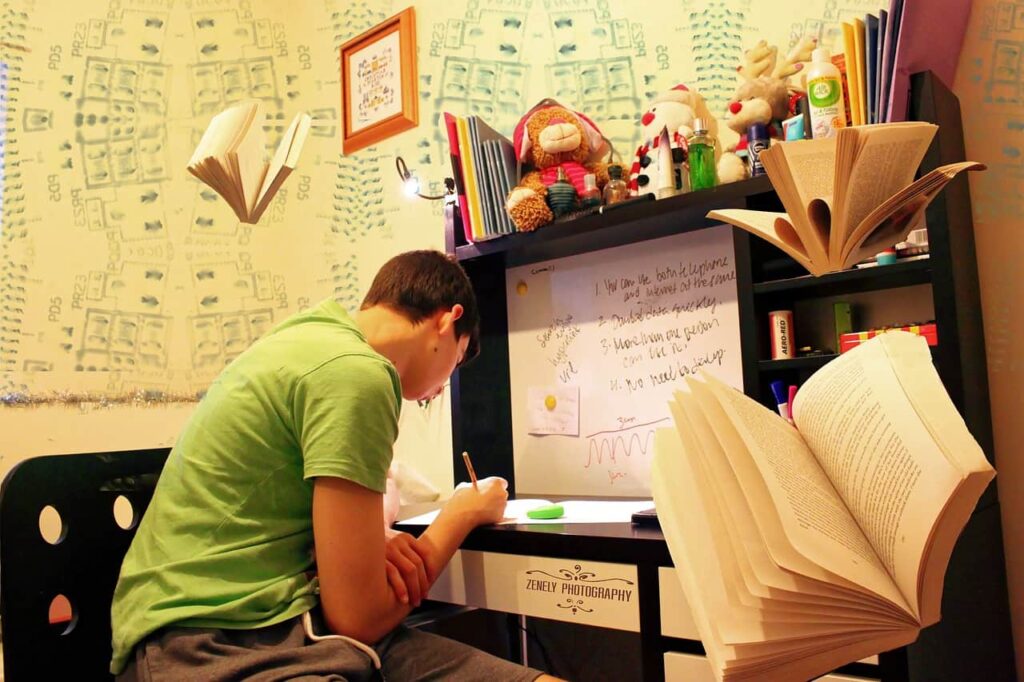Results day.

It’s hard to miss at this time of year – there aren’t many news sources that won’t have a hideously posed photo of a prettier-than-average boy or girl clutching a bit of paper with a look of either sheer relief or abject terror on their face. And, year on year, you can find a slurry of headlines like “Anger over GCSE English grades” and “Are exams getting easier? Nobody knows.”
TV wasn’t any better. No matter which channel I picked, all I found were in-the-field reports from schools around the country, designed to leave viewers at home on the edge of their seats wondering if Jenny Whatshername from Trowbridge would get the twenty-three A* grades she needs to get into some university or college we’ve never heard of.
It felt a bit like a twisted reality TV show.
I started to hunt for some reports related to actual achievement. In amongst the flurry of headlines and blame games that surround examination results, it’s hard to pick out the real human success stories. It’s not that they don’t exist – but in a system that values high grades in standardised testing, they’re harder to pick out.
Look at Tom Daley’s solo dive just a week or two ago. After having been through a lot, and having not done well in the synchronised finals, he pulled a bronze medal out of the bag. That took skill, dedication, and a lot of hard work. Was it a gold medal? An A*?
No.
But you only have to look at 10 seconds of footage after he got the medal to see that it meant as much to him as any gold medal could. It was an achievement. A big one.
A maths teacher of mine always used to say “good grades unlock all the doors” – but where does Tom Daley fit into that with his bronze medal? And what about the hundreds of thousands of young people who got a few C and D grades last week, but worked really hard for them? Or the students who failed an exam but are passionate, inspirational people?
I got chatting yesterday to a friend of mine with a PhD in Physics. His name is David, but for the sake of anonymity let’s call him Dave. He was a results day poster child – with 11 A* grades at GCSE, Three As and a B at A-Level, and a first class doctorate in Physics at a prestigious university under his belt, he’s one of the smartest people in the country.
On paper.
Yet he’s unemployed. His social skills are awful, he has no imagination, he finds it hard to understand things like business, finance and marketing, and his drive to better himself goes no further than getting more bits of paper that say how brilliant he is.
It’s interesting to compare and contrast the journalistic ‘results fever’ to the press’ love affair with the ‘modern day hero’. In technology alone, the fame that people like Bill Gates and Steve Jobs have enjoyed over the years for their contributions to the world has propelled them into common nomenclature.
All of their achievements – their passion, their tenacity, and their great ideas – wouldn’t have shown up on the radar of any standardised test or examination.
I can’t be alone in thinking that something isn’t quite right there.
We live in a world governed by standardisation, where ticking a box can often seem as important as achieving something tangible. It’s understandable that this has bled into education – often putting more focus on a grade than actual achievement.
Understandable, but wrong.
Success is where you find it. It looks different for everyone, and should be celebrated wherever it happens. Grades don’t propel the world forward. They don’t create the future, cure illnesses, or bring people together in peace and harmony.
Education is important. Learning is important. They’re a basic human right that everyone should have access to, throughout their entire lives. Can the same be said for standardised testing and grades?
I don’t know what the moral of this story is.
Should we celebrate people’s academic ability? Yes. Should we shine a brighter spotlight on brilliant people, regardless of grades and qualifications? Absolutely. Are grades everything? I don’t believe so.
And so if you know someone who got fantastic grades, great! Congratulate them, but remind them that they aren’t everything.
And those who felt disappointed at their exam results? My advice is simple: stop panicking and start being awesome instead.
Oh – and hurry up with inventing a flying car.






